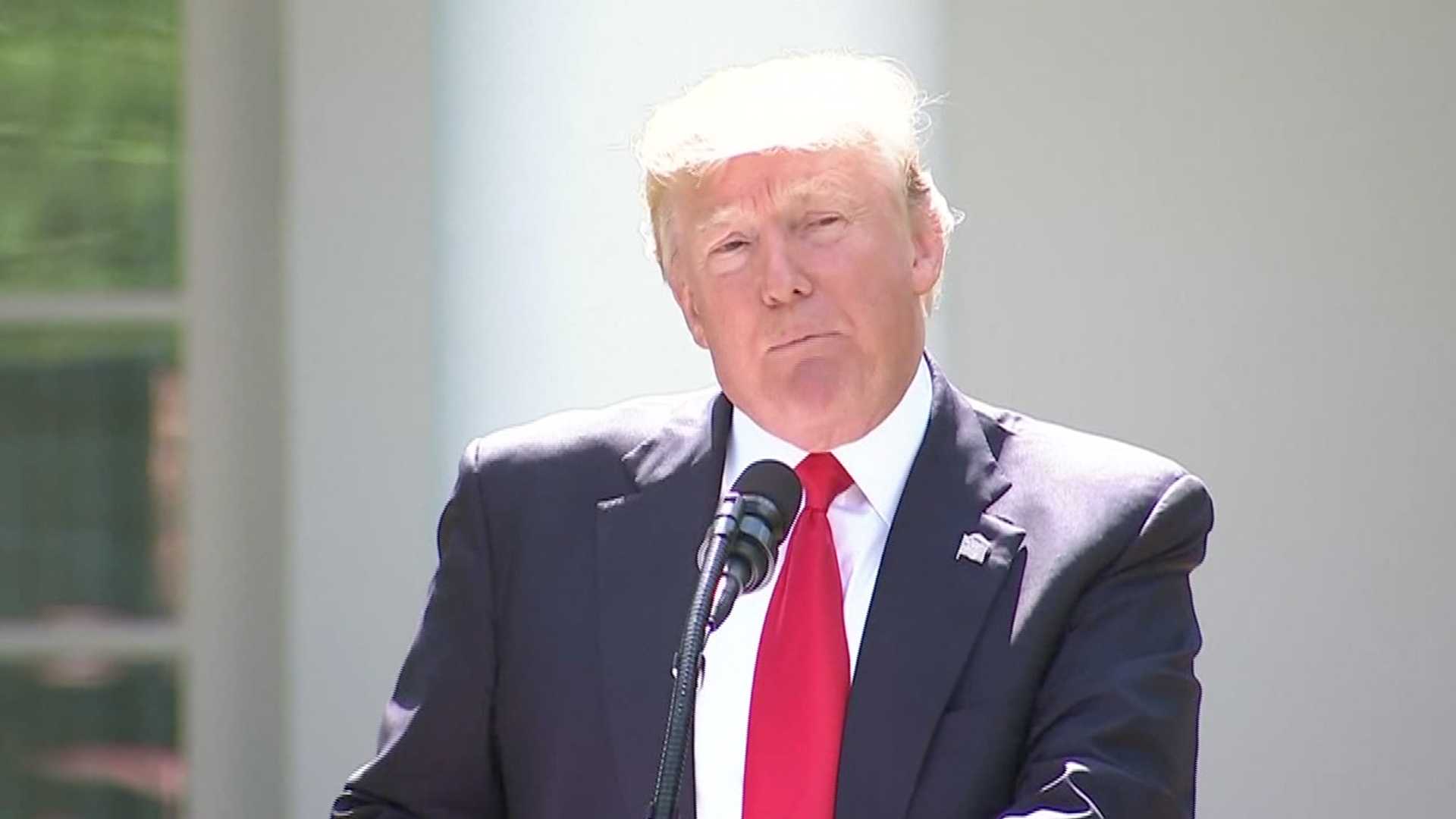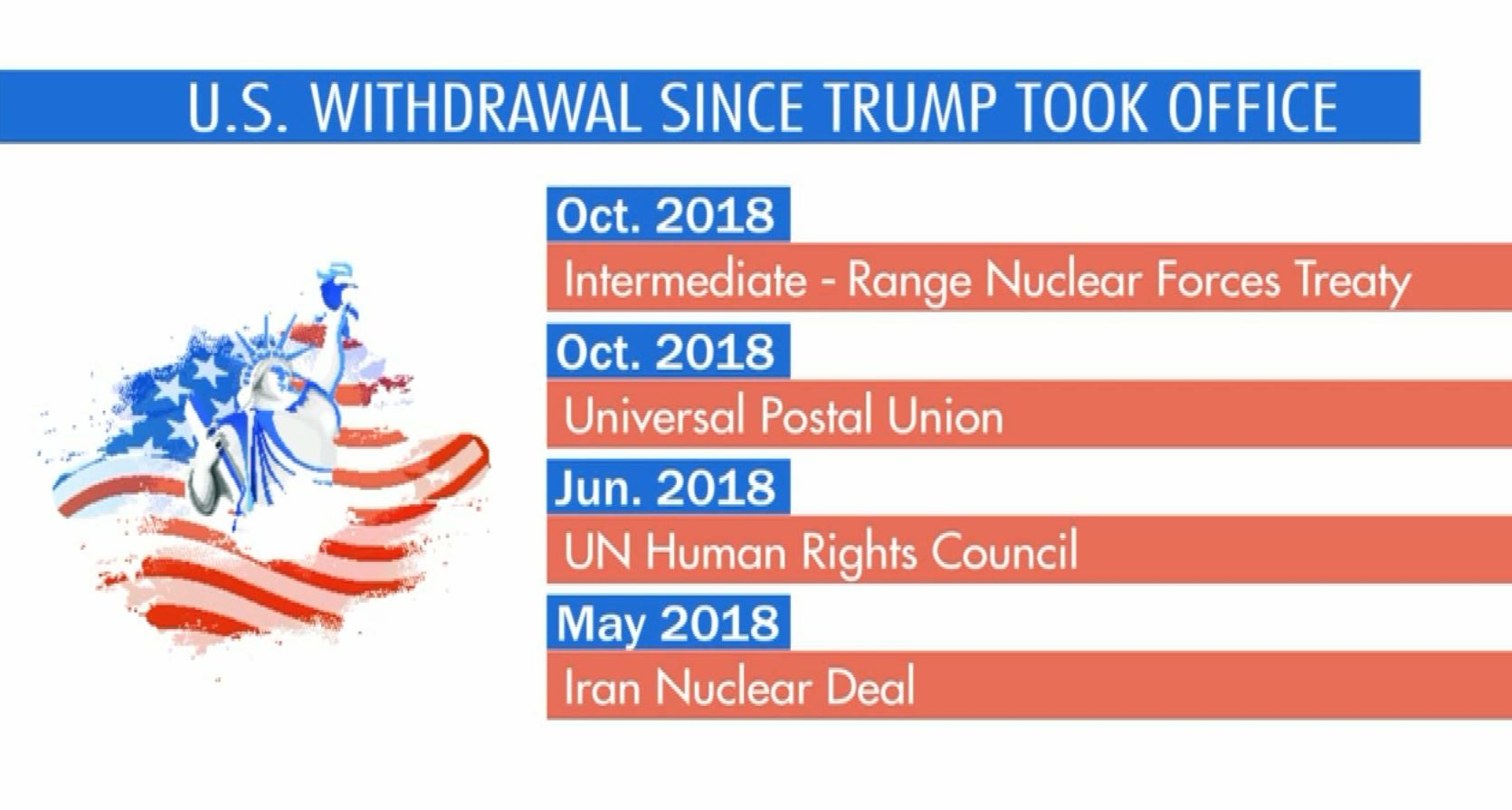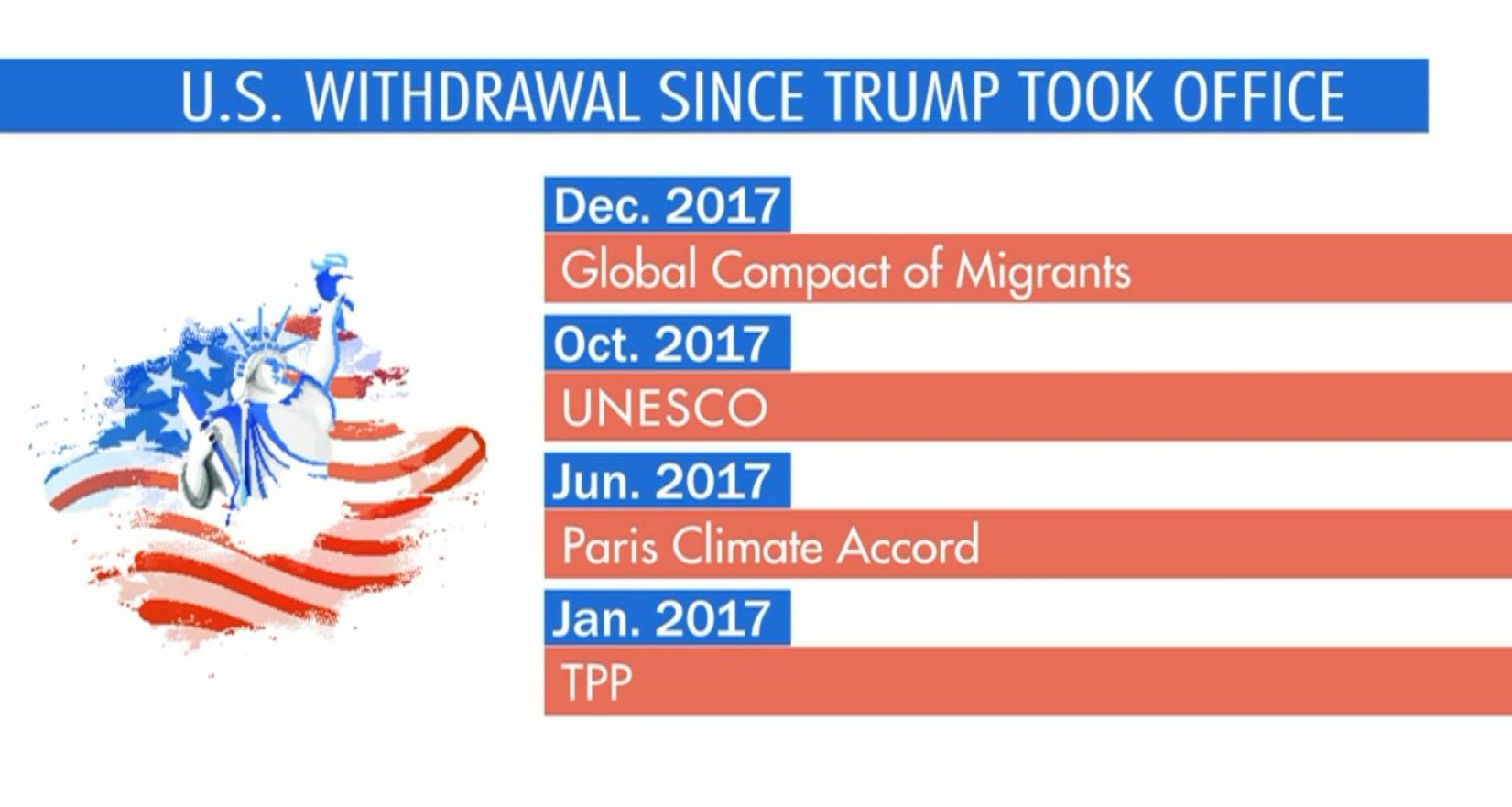
World
15:55, 26-Oct-2018
US going it alone - withdrawn from 8 international deals
Updated
15:52, 29-Oct-2018
CGTN's World Insight
00:20

Since US President Donald Trump took office, globalization and a multilateral foreign policy have been at the backburner.
Recently, Trump confirmed that the US will withdraw from the nuclear arms treaty with Russia, which has been described as a "dangerous step" by Russia's deputy foreign minister.
The Intermediate-Range Nuclear Forces Treaty, negotiated by then-President Ronald Reagan and Soviet leader Mikhail Gorbachev in 1987, eliminated nuclear missiles from Europe.
This provoked a wave of protests from anti-nuclear campaigners, who felt the deployment of missiles turned Europe into a potential nuclear battleground.
"We now urge the United States to consider the possible consequences," of quitting the pact, German Foreign Minister Heiko Maas said. But the British defense minister Gavin Williamson said London stood "resolute" behind Washington in comments reported by the Financial Times.
So far, the US has withdrawn from eight deals it has signed. Yet, President Trump, with his "American First" policy, is far from done. He has waged a tariff war with most trading partners, and security concerns are growing across the world.

The US has withdrawn from eight international deals so far. /CGTN Photo
The US has withdrawn from eight international deals so far. /CGTN Photo
Since Trump took office, he delivered on his campaign promises to pull the US out of international deals he deemed "unfair".
In pursuit of the interest of the world's largest economy, he has decided to ditch long-standing commitments the US had made with different partners -- some about trade, some about security.
Most significantly, the US withdrew from the Paris Climate Accord in June of 2017 and later in December, the Trump administration pulled out of the UN global compact on migration.

The US withdrew from the Paris Climate Accord in June of 2017. /CGTN Photo
The US withdrew from the Paris Climate Accord in June of 2017. /CGTN Photo
By doing so, US President Trump started the trend of anti-globalization, which encouraged nationalism and extremism around the world.
A trade war between the world's largest economies has cost the growth of the global economy.
And trade rules between the US and its traditional allies have either been re-written or re-negotiated.
When it comes to security, Russian President Vladimir Putin made an interesting metaphor. He said: "As far as I remember the coat of arms of the United States depicts a bald eagle. In one talon it holds 13 arrows and in the other - an olive branch as a sign of a peaceful policy with 13 olives on it. Has your eagle already picked all the olives, so only arrows are left?"
With the mid-term elections getting close, the world is waiting for the US to give a clear answer.
(With input from agencies)
World Insight with Tian Wei is a 45-minute global affairs and debate show on CGTN. It airs weekdays at 10:15 p.m. BJT (1415GMT), with rebroadcasts at 4:15 a.m. BJT (2015GMT).

SITEMAP
Copyright © 2018 CGTN. Beijing ICP prepared NO.16065310-3
Copyright © 2018 CGTN. Beijing ICP prepared NO.16065310-3